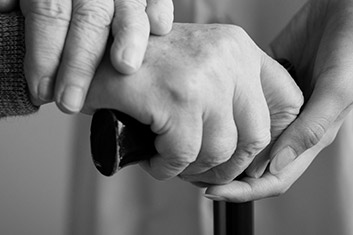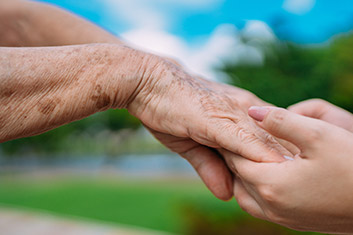Thank you for your interest. Someone will reach out to you as soon as possible. In the meantime, we’ve found some additional content you may be interested in.
5 Modos en que Promotores de Salud Involucran a los Adultos Mayores Hispanos/Latinos.
La población de adultos mayores esta creciendo en los Estados Unidos y los adultos mayores hispanos/latinos es el grupo que está creciendo más rápido que todos. Se espera que hispanos mayores de 65 años aumente desde 4.6 millones en 2017 a 19.9 millones en el año 2060.1 Es importante involucrar hispanos en los servicios de salud mientras envejecen para promover buena salud y bienestar; reducir disparidades de salud; y prevenir la aislación social, heridas por caídas; y el desarrollo de enfermedades crónicas.
5 Ways Community Health Workers Engage with Hispanic/Latino Older Adults
The older adult population is growing in the United States and older Hispanic/Latino adults are the fastest growing group. Hispanics over 65 years old are expected to grow from 4.6 million in 2017 to 19.9 million in 2060 . It is important to engage Hispanics in health services as they age to promote health and wellbeing; reduce health disparities; and prevent social isolation, injury due to falls, and the development of chronic conditions.
Involving Children and Parents in Diabetes Health Education for Youth
Health education is one of the core components of decreasing the prevalence of diabetes and improving health outcomes around the disease, especially when it comes to children. The earlier in a child’s life that they can learn healthy habits, the better their health outcomes will be later in life. Doing this establishes a foundation that will make it easier to maintain healthy behaviors and avoid the controllable factors that contribute to diabetes onset as adults.
CHW Professional Development: A Journey from CHW to Eligibility Specialist
Each month, we will highlight the journey of individuals' professional development into roles within and outside of the CHW profession. The first story is about Marco's journey from CHW to Eligibility Specialist. The second features Ricardo, who also became an Eligibility Specialist, but unlike Marco, he did not start out as a CHW. This story is included to illustrate how the CHW profession builds skillsets that are desirable across industries. It is also included to illustrate the key differences between the CHW profession and other careers in related fields.
Migrant Seasonal Agricultural Workers and Latino Communities Managing Diabetes
Migrant Seasonal Agricultural Workers (MSAW) are part of the underserved groups considered essential during the ongoing pandemic. More than 80 percent of MSAWs in the U.S. are Hispanic/Latino. Hispanic/Latino adults have a rate of about 50 percent of developing Diabetes Type 2 due to genetics, food, culture, weight, and activity.
CHW Professional Development: A Journey from CHW to Health Educator
This month's feature is about Sofia's journey from CHW to Health Educator and David, who also became a Health Educator, but unlike Sofia, he did not start out as a CHW. These stories illustrate how the CHW profession builds skillsets that are desirable across industries.







